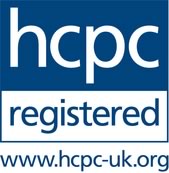PHYSIOTHERAPY




What is Physiotherapy?
Physiotherapy is a healthcare profession that assesses, diagnoses, treats, and works to prevent disease and disability through physical means. Physiotherapists are experts in movement and function who work in partnership with their patients, assisting them to overcome conditions of the muscular, joint and nervous systems. They play an important role in identifying and correcting biomechanical dysfunctions, which may be present due to injury, sports, road traffic accidents or postural disorders.
Treatment and advice are used to help with the pain relief, healing and rehabilitation of most neuromusculoskeletal conditions. Physiotherapists can treat people of all ages and background.
As well as evidence based, manual treatment they will also advise you on changes to lifestyle and ways you can reduce further muscle and joint problems with exercise programs and methods to cope with both acute and chronic conditions. In addition to traditional physiotherapy techniques, our therapists are also trained in Acupuncture and dry needling.
Physiotherapists are able to refer to consultants, surgeons, GP’s and other specialists when required as well as refer privately for MRI, X-ray or imaging.
Covered by all major insurers including Bupa, AXA, Cigna, Vitality, WPA, Simply Health
What symptoms can physiotherapy help with?
Back, Neck and Shoulder Pains
80% of the population suffer back pain at some point in their lives and it is one of the leading causes of time off work, loss of productivity and forcing people to miss out on their favourite recreations as well as activities of daily living.
Many studies have concluded that manual therapies commonly used by chiropractors are generally effective for the treatment of lower back pain as well as for treatment of lumbar disc injury (bulge), for radiculopathy (sciatica) and neck pain, among other conditions.
Posture Problems
Research has suggested that remaining seated for too long is bad for your health, regardless of how much exercise you do. In addition to causing repetitive stress and strain on your ligaments, soft tissues, joints and discs, studies have linked excessive sitting with being overweight and obese, type 2 diabetes, some types of cancer, just to name a few.
Prolonged sitting is thought to slow the metabolism, which affects the body’s ability to regulate blood sugar, blood pressure and break down body fat. Many adults in the UK spend more than seven hours a day sitting or lying, and this typically increases with age to 10 hours or more.
Chiropractic treatment and advice on exercise and postural correction can help limit the effects of a sedentary profession!
Headaches
The causes and triggers of heachaches are wide and varied but one common cause is referred pain from the neck and upper back. A report released in 2001 by researchers at the Duke University Evidence-Based Practice Centre in the USA found that spinal manipulation resulted in almost immediate improvement for those headaches that originate in the neck, and achieved at least similar and in many cases better pain relief than use of medication.
Your chiropractor may in these cases liase with your GP to perform any appropriate tests to rule out other sources of headaches to assist diagnosis of headaches originating from the neck before proceeding with treatment.
Hip & Knee Injuries
Chiropractors don’t only treat backs! We are also trained and experiences in treating peripheral injuries in both the lower and upper limb and have a range of techniques to suit many conditions.
Sports Injuries
Whether you’re an elite athlete, a weekend warrior or someone is bit bit over competitive in Wednesday night football we love sports and we love helping people getting back to the sports and activities they love as quicky as possible AND make them perform at their best!
Pain Management
At Greenwich Chiropractic we place a high importance on educating patients on their condition and the underlying causes of it so people can best understand what is happening and how to best manage the problem. Following this, prescribing home exercises and self management advice in conjunction with manual therapy allows the patient to take control of their condition.
Whiplash Injury
NICE guidelines recommend manual therapy as mobilisation can provide short-term relief of pain and facilitate early mobility and recovery.
FAQs
Can I pay by credit card or cheque?
We accept all major credit and debit cards, cash, cheque and are also happy to offer online payments via electronic banking or Paypal.
How long is a session?
For an Initial Chiropractic Consultation please allow 45 minutes for the appointment, we also appreciate if patients are able to arrive 5 minutes before their appointment time on the first visit to complete registration forms.
How many sessions will I need?
Every patient and every condition is different, therefore every patient will be advised of their ideal course of management for both the short and long term to achieve the optimum result. This of course is result of dialogue between the Chiropractor and the patient and will always be tailored to the patients needs, goals, availability and circumstance.
What can I expect on my first visit?
On the Initial Chiropractic Consultation we will take a comprehensive medical history as well as discuss the history of your presenting condition, followed by an examination to ascertain an accurate diagnosis. Once an explanation of the diagnosis and other contributing factors has been made we will proceed with treatment on the first visit wherever appropriate. If any further investigations are required external referrals can be made for x-rays, scans or consultants.
Follow up Chiropractic treatments will include continuing re-assessment of your progress and modifications to the treatment plan and frequency as required. We believe in every patient and condition having an individualised treatment plan that is appropriate for your specific needs.
Massage Therapy treatments will involve a brief history and examination to ascertain a diagnosis and plan of management followed by the hands on treatment. Treatment style and focus will be a joint decision between the patient and the practitioner taking into account the best recommended techniques and patient preference.
What clothing do I need to wear?
Typically chiropractic treatment and examination does not require patients to disrobe however if possible we ask that patients wear loose, comfortable clothing, or alternatively bring some gym style clothing to change into. On occasions we do need to ask patients to wear a clinic gown when examining a particular area or condition if they are comfortable doing so.
